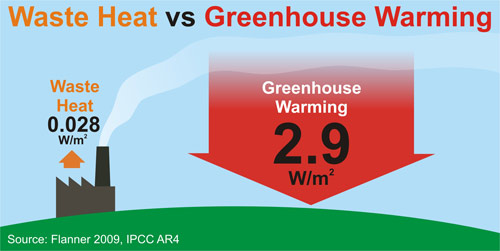 Arguments
Arguments
 Software
Software
 Resources
Comments
Resources
Comments
 The Consensus Project
The Consensus Project
 Translations
Translations
 About
Support
About
Support


Latest Posts
- How climate change broke the Pacific Northwest’s plumbing
- Fact brief - Do solar panels generate more waste than fossil fuels?
- Zeke's 2026 and 2027 global temperature forecasts
- 2025 SkS Weekly Climate Change & Global Warming News Roundup #51
- Skeptical Science New Research for Week #51 2025
- What are the causes of recent record-high global temperatures?
- Fact brief - Are toxic heavy metals from solar panels posing a threat to human health?
- Emergence vs Detection & Attribution
- 2025 SkS Weekly Climate Change & Global Warming News Roundup #50
- Skeptical Science New Research for Week #50 2025
- The rest of the world is lapping the U.S. in the EV race
- Fact brief - Are electromagnetic fields from solar farms harmful to human health?
- Comparing climate models with observations
- 2025 SkS Weekly Climate Change & Global Warming News Roundup #49
- Skeptical Science New Research for Week #49 2025
- Climate Adam & Dr Gilbz - Paris Climate Agreement At 10: Did It Do Anything?
- Fact brief - Does the recent slowdown in Arctic sea-ice extent loss disprove human-caused warming?
- Why the chemtrail conspiracy theory lingers and grows – and why Tucker Carlson is talking about it
- 2025 SkS Weekly Climate Change & Global Warming News Roundup #48
- Skeptical Science New Research for Week #48 2025
- Consensus machines
- Just have a Think - How an African energy revolution could save ALL of us.
- A girl’s grades drop every summer. There’s an alarming explanation.
- 2025 SkS Weekly Climate Change & Global Warming News Roundup #47
- Fact brief - Are changes in solar activity causing climate change?
- Skeptical Science New Research for Week #47 2025
- Exploring newly released estimates of current policy warming
- Climate Adam - Why the Climate Crisis is a Health Crisis
- Super pollutants are trendy, but we should be careful how we use them
- 2025 SkS Weekly Climate Change & Global Warming News Roundup #46
Archived Rebuttal
This is the archived Intermediate rebuttal to the climate myth "It's waste heat". Click here to view the latest rebuttal.
What the science says...
| The contribution of waste heat to the global climate is 0.028 W/m2. In contrast, the contribution from human greenhouse gases is 2.9 W/m2. Greenhouse warming is adding about 100 times more heat to our climate than waste heat. |
When humans use energy, it gives off heat. Whenever we burn fossil fuels, heat is emitted. This heat doesn't just disappear - it dissipates into our environment. How much does waste heat contribute to global warming? This has been calculated in Flanner 2009 (if you want to read the full paper, access details are posted here). Flanner contributes that the contribution of waste heat to the global climate is 0.028 W/m2. In contrast, the contribution from human greenhouse gases is 2.9 W/m2 (IPCC AR4 Section 2.1). Waste heat is about 1% of greenhouse warming.

What does these numbers mean? They refer to radiative forcing, the change in energy flux at the top of the atmosphere. Or putting it in plain English, the amount of heat being added to our climate. Greenhouse warming is currently adding about 100 times more heat to our climate than waste heat.
Updated on 2010-07-27 by John Cook.
THE ESCALATOR

(free to republish)
























































